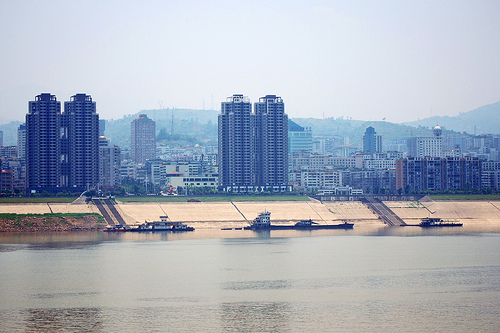Greenpeace shames corporate America

Corporate America is potentially the least environmentally responsible behemoth I can think of. Even the words "Cor-por-ate A-mer-i-ca" are these short, sharp syllables that make you feel like someone is spitting in your face while they say it. It's almost like there is a competition going on between the corporations where the goal is to be the most profitable at any cost, no matter what the consequences to the environment.
But if it is a competition, then some of the companies must understand the value of good sportsmanship in any sporting venture, and some of those companies must be sports companies. And they're doing it in response to a tactic that hearkens back to the playground sports of my younger years.
Greenpeace is shaming them.
While we tell our children things like, "if you don't have anything nice to say, don't say anything at all," the truth is that sometimes pointing a finger at someone carelessly breaking a rule and making things worse for everyone can be a positive motivating factor.
Greenpeace published a project they called "Dirty Laundry" last year where they researched and proved that quite a few multi-national corporations were buying supplies from a Chinese manufacturing plant that was discharging hormone-disrupting chemicals into the Yangtze River in China.
The result?
An Adidas spokesperson told BusinessGreen:
“We believe there needs to be an industry-wide approach and that’s why we’re trying to get together as a group. We’ve already had first discussions with other brands and we’ve been in constant dialogue in the last couple of weeks.”
And Nike published their own plan to eliminate all hazardous chemicals from the life cycle of all of its products by 2020.
That's incredible. A year after this report was published, Adidas, Nike and others are making very real, very public changes in the way they do business. Maybe not having anything nice to say is as good a reason as any when it comes to speaking up about environmental damage.
Image courtesy of HBarrison via flickr

1 comments